Animal-free dairy cheese appeals to over half of global consumers
20 Jul 2021Globally, 70.5% of consumers said they would be willing to buy cheese made with dairy proteins that don’t come from animals, according to a new survey from the precision fermentation company Formo and the University of Bath published in the journal Frontiers in Sustainable Food Systems. That number climbs even higher to 78.8% for consumers who said they are probably or definitely likely to try such a product.
This survey polled just over 5,000 people from the U.S., U.K., Brazil, Germany and India. Out of the participants polled, the U.S. and the U.K. had the lowest number of consumers who said they would be likely to buy cheese animal-free dairy with a 53.8% and 58.5% positive response rate respectively. The U.S. demonstrated particularly polarized results with a larger proportion of respondents answering that they either “definitely” would or would not purchase an animal-free dairy cheese.

Brazil and India, however, had the highest rates of acceptance for animal-free cheese. In each country, the vast majority of people, 92.0% and 93.4% respectively, said they would probably or definitely try animal-free dairy cheese.
When asked whether they would regularly purchase such a product, positive responses for all those surveyed dropped substantially, and only in Brazil and Germany did the majority of people (68% and 73.9%) respond that they would do so.
While animal-free cheese was perceived as a more ethical and environmentally friendly product across all countries, respondents perceived this product as less tasty than traditional animal dairy equivalents despite their impression that it would have a similar health and safety profile.
Taste remains one of the major hurdles that manufacturers face when making animal-free protein alternatives. A 2019 white paper by Kerry found that good taste, or lack thereof, remains the No. 1 barrier for plant-based substitutes. Even with continuing struggles with flavor, it is a positive sign that nearly three-quarters of consumers are willing to give animal-free cheese a taste.
At this point, animal-free cheese equivalents are not available on the market despite plant-based alternatives proliferating at a rapid pace. As a result, companies that are working with precision fermentation to create a cheese that does not rely on traditional animal husbandry have time to both work on taste and storytelling to persuade consumers to do more than just try these products and instead become regular buyers.
If they can succeed in persuading people to shift to animal-free dairy, there is plenty of room to grow. SPINS data from 2020 showed that the market for plant-based cheese grew twice as fast as dairy cheese, jumping 42%. If startups can figure out how to align their animal-free products with the plant-based movement, there is a good chance that they too will be able to benefit from this continuing surge in animal-free product popularity.
Related news

Plant-based fish and seafood launches around the world
12 Dec 2022
From pea protein-based prawns to microalgae-based tuna alternatives, plant-based alternatives to fish and seafood are on the rise around the world.
Read more
Editors’ choice: Our roundup of the most innovative sweets, snacks and bakery products
9 Dec 2022
The sweets, snacks, and bakery categories are an exciting area, full of fresh and innovative products which are constantly adding meaningful value to the sector.
Read more
Functional food in Japan centres on health and proving claims
8 Dec 2022
The latest Japanese functional food and drink trends put health and product efficacy firmly on the production agenda for new releases.
Read more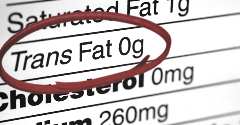
Philippines to restrict trans fats in processed foods
5 Dec 2022
Use of artificial trans fats in pre-packed processed foods will be restricted in the Philippines as the country looks to eliminate its consumption from other sources too.
Read more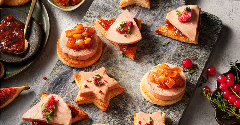
Nestlé becomes latest brand to launch vegan version of foie gras
1 Dec 2022
Foie gras, a traditional staple of Christmas dinner across France and other European countries, has long been a controversial delicacy. Now, Nestlé has become the latest company to create a cruelty-free vegan version under its Garden Gourmet brand.
Read more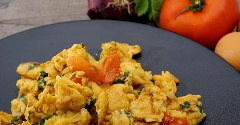
Nestlé launches plant-based egg in Latin America
29 Nov 2022
Nestlé has launched a powdered plant-based protein under its Mahler brand that consumers can add to egg dishes such as omelettes, allowing them to make dishes that are cheaper but still nutritious, it says.
Read more
enduracarb®: A science-backed trehalose ingredient for athletic endurance
24 Nov 2022
enduracarb® is a science-backed, slow-acting carbohydrate that can power athletes’ performance. Produced using a high-purity production process, it is suitable for a wide variety of applications.
Read more
FDA in ‘critical milestone’ for cell-cultured meat in US
18 Nov 2022
The US Food and Drug Administration (FDA) has completed its first pre-market consultation of a cell-cultured chicken product made by UPSIDE Foods, a development that has been hailed a “critical and inspiring milestone in the history of cultivated meat”...
Read more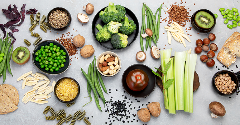
Quorn and Nature’s Fynd among founding members of the Fungi Protein Association
15 Nov 2022
Global fungi protein manufacturers have formed the Fungi Protein Association (FPA), a trade body that promotes fungi as a sustainable protein in public policy and conducts consumer research on the ingredient.
Read more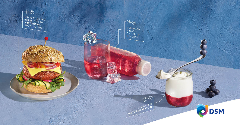
Enjoy it all: DSM talks taste, texture and health in the run up to FiE 2022
10 Nov 2022
Enhancing plant-based applications in taste, texture and health, addressing trending health priorities and introducing efficiency improving technologies – don’t miss the chance to meet DSM at FiE.
Read more